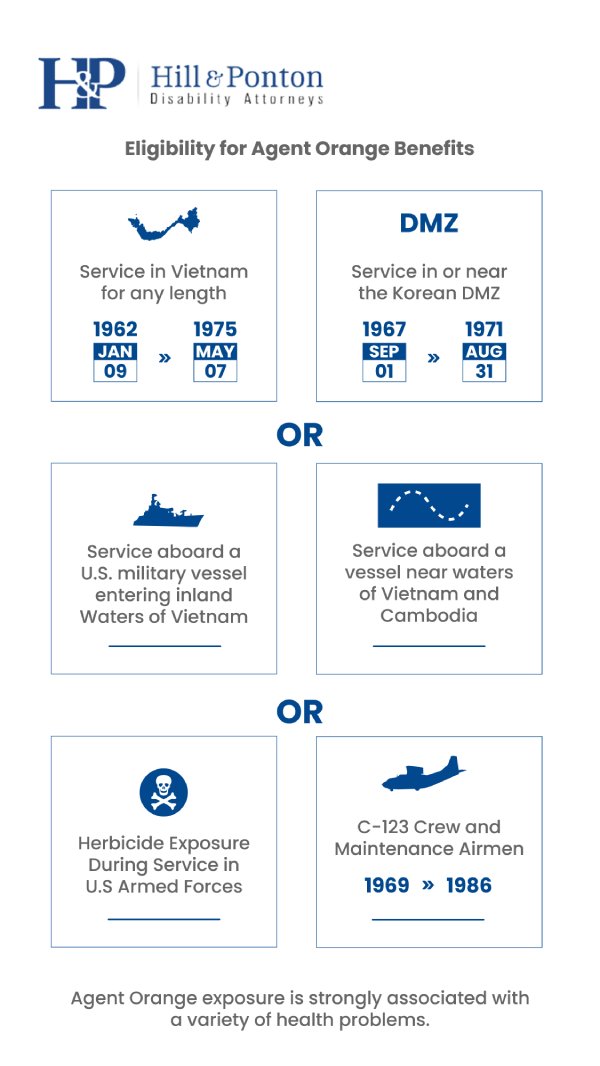Agent Orange was a mixture of herbicides utilized by the U.S. military during the Vietnam War.
It has left a lasting impact on both veterans and future generations.
Designed to remove forest cover and crops, over 20 million gallons of this toxic chemical were sprayed across Vietnam and surrounding areas, exposing countless U.S. service members and locals to its harmful effects.
How Were Veterans Exposed to Agent Orange?
Veterans were exposed to Agent Orange in various ways during the Vietnam War era, as the U.S. military used this herbicide extensively to clear foliage and forest cover.
Some of the most common ways they may have encountered the chemical include:
- Aerial Spraying: The most widespread method of dispersing Agent Orange was through aerial spraying over the dense forests and vegetation in Vietnam, to help eliminate cover for enemy troops. Many veterans who served in or near these areas were exposed as the herbicides settled on the ground or were inhaled.
- Ground Application: Troops on the ground also utilized Agent Orange to clear out vegetation near bases, camps and along supply routes. Direct contact often occurred through handling and applying the chemical.
- Contaminated Equipment: Veterans who operated or maintained equipment and vehicles that were used in contaminated areas may have also been exposed.
- Drinking and Using Contaminated Water: The herbicide often leached into rivers, streams?and groundwater, contaminating water sources that were utilized by troops for drinking, bathing and cooking.
- Atmospheric Transport: Dioxin, a toxic component of Agent Orange, could adhere to dust particles and was often carried by the wind, allowing for the potential impact of those who weren’t in direct contact with sprayed areas.
Additionally, there were certain groups of veterans that had greater risk of exposure:
- Those serving in Vietnam, the Korean Demilitarized Zone (DMZ), Laos, Cambodia, Guam, American Samoa, Johnson Atoll and all Thailand bases: Military personnel that were stationed in these regions during specific dates are presumed to have been exposed to Agent Orange.
- C-123 Aircraft Personnel: Crew members of C-123 planes, which were used to spray Agent Orange during the war and then later for cargo and transport missions, were exposed to significant levels of dioxin contamination.
- Naval Operations: Veterans who served on ships that operated in the inland waterways of Vietnam and those who were part of the “Blue Water Navy” and served within the 12-mile territorial sea of Vietnam are also considered to have been exposed under certain conditions.

Find out if you were aboard a U.S. military vessel that was exposed to Agent Orange by using our interactive Blue Water Navy Map below.

Click here to find out if your ship was exposed
Symptoms Overview and Associated Conditions
Veterans exposed to Agent Orange may experience a diverse range of symptoms, often connected with presumptive conditions recognized by the U.S. Department of Veterans Affairs (VA).
Understanding the connection between specific symptoms and the health conditions they may indicate is important so veterans may be able to connect them for benefits.
Below is an extensive list of symptoms and corresponding conditions they might be linked to, based on Agent Orange exposure. The list is in alphabetical order by symptom to help make it easier to find what you may be looking for.
- Abdominal Pain: Non-Hodgkin’s Lymphoma, Soft Tissue Sarcoma
- Blood in Semen: Prostate Cancer
- Bone Pain: Multiple Myeloma, Soft Tissue Sarcoma
- Chest Pain or Angina: Ischemic Heart Disease
- Coughing or Wheezing: Respiratory Cancers, Ischemic Heart Disease
- Dark Skin Patches: Diabetes Mellitus Type 2
- Difficulty Breathing or Shortness of Breath: Respiratory Cancers, Ischemic Heart Disease
- Difficulty Urinating or Weak Stream: Prostate Cancer
- Erectile Dysfunction: Prostate Cancer, Diabetes Mellitus Type 2
- Excessive Thirst and Frequent Urination: Diabetes Mellitus Type 2
- Fatigue: Chronic B-cell Leukemia, Hodgkin’s Disease, Multiple Myeloma, Non-Hodgkin’s Lymphoma, Prostate Cancer, Type 2 Diabetes Mellitus
- Fever: Hodgkin’s Disease, Non-Hodgkin’s Lymphoma
- Frequent Infections: Chronic B-Cell Leukemia, Hodgkin’s Disease
- Headaches: Non-Hodgkin’s Lymphoma, Peripheral Neuropathy
- Muscle Weakness: AL Amyloidosis, Peripheral Neuropathy
- Night Sweats: Hodgkin’s Disease, Non-Hodgkin’s Lymphoma
- Numbness or Tingling in Hands and Feet: Peripheral Neuropathy, Diabetes Mellitus Type 2
- Skin Conditions (Acne, Blackheads, Excess Oiliness): Hodgkin’s Lymphoma, Non-Hodgkin’s Lymphoma
- Swelling of Feet and Legs (Edema): AL Amyloidosis, Ischemic Heart Disease
- Tremors: Parkinson’s Disease
- Unexplained Weight Loss: Chronic B-cell Leukemia, Non-Hodgkin’s Lymphoma, Prostate Cancer, Respiratory Cancers
- Difficulty with Writing or Small Handwriting: Parkinson’s Disease
- Rigid Muscles: Parkinson’s Disease
- Slow Movement: Parkinson’s Disease
Impacts of Agent Orange on Veteran Offspring
Research has continued to show that the repercussions of exposure to Agent Orange extend beyond veterans who were directly affected by the herbicide.
The toxic chemical dioxin has been linked to congenital disorders and health complications in children, also known as “Agent Orange babies,” of exposed individuals.
The damage to reproductive organs and cells, caused by dioxin, can impact the growth and development of biological children.
Some of the known disorders include:
- Spina Bifida: A neural tube defect that results in spinal cord and backbone issues.
- Cleft Lip and Cleft Palate: Birth defects that affect the upper lip and roof of mouth.
- Congenital Heart Disease: Defects in the heart’s structure that are present at birth.
- Hyperthyroidism: A condition where the thyroid gland doesn’t produce enough thyroid hormones.
- Neural Tube Defects: Birth defects of the brain, spine or spinal cord that occur in the first month of pregnancy.
Do you have a child who may have been impacted by your Agent Orange exposure?

Cassandra Crosby, an Accredited Agent and claims advocate for Matthew Hill & Shelly Mark’s teams, reviewed the information provided in this post.




